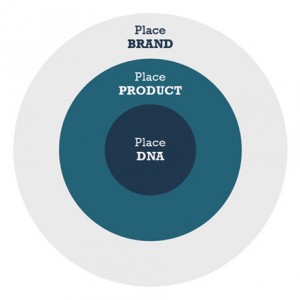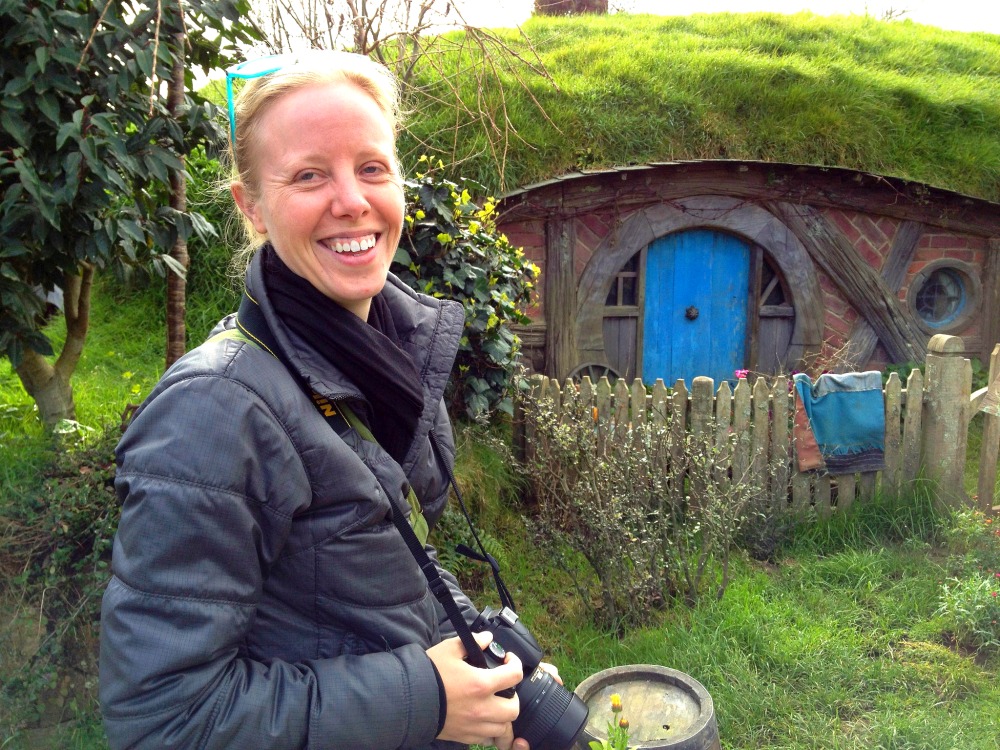“How was your trip?”
The answers to this question are the stories your destination’s visitors and residents tell. Travel has infinite variety, but the resulting stories all have one thing in common: memorable experiences.
This means that if your destination marketing organization (DMO) really wants to grow awareness and visitation by telling the right stories to the right people who will share them with the world, improving your destination’s product is the way to do it.
Your product emerges from your destination’s identity

Place branding has three layers, with DNA at its core. Place DNA® is the “Why” of your destination – it helps reveal a place’s identity and purpose and serves to test the authenticity of your marketing efforts. Moving one layer out from Place DNA®, Product asks, “How?” How do people experience your place? What factors affect how people spend their time there? The experiences a place creates will shape the stories told by its residents and visitors. For this reason, a place’s product is a direct link between Place DNA® and brand.
Helping your destination build and coordinate meaningful experiences is where you can add value for both your visitors and your industry. There is nothing you can do to change your destination’s DNA, so you must face it and embrace it. But product is next in line, and improving the visitor experience is where your destination needs to take the lead.
It’s time to lead beyond promotion
To lead with place product effectively, you’ll need to meet these three conditions: the right definition of marketing, the right strategy and a healthy dose of creativity.
Having the right marketing and the right strategy means thinking beyond promotion. Infuse your strategy with a vision for product development, without artificially separating it from promotion. Your destination should develop what it promotes and promote what it develops, without confusing promotion with marketing.
By necessity, the marketing of developing place product is a collaborative effort. It’s important to remember that the product belongs to the visitors and residents who shape and share it. Treating a DMO like a promotional agency for a product that belongs to industry leaders alone would be like producing a movie without a script – the important elements of story would likely go missing. DMOs should work toward creating the right conditions for meaningful experiences by facilitating cooperation, as Gold Coast Tourism has begun to do, instead of exerting top-down control.
These creative destinations are focused on product
Creativity sounds cool and sexy, especially in the urban world where “the creative city” has become a trendy, all-purpose concept that anyone can hang their hat on. In reality, creativity is hard work and in tourism, it’s very specific to each place. This is why defining and articulating destination DNA becomes so important.
Fortunately, more and more progressive DMOs are stepping forward to show us examples of their creativity in this area. Visit Flanders has appointed Product Managers to work with their market niches and help bridge the gap between experience and promotion. Southern Norway’s Usus program has built a platform for industry collaboration to enhance the level of product development within their industry. Destination British Columbia developed the Remarkable Experiences program in partnership with Destination Think, which is designed to help individual businesses improve their visitor experience.
For further examples, New Zealand’s “Hobbiton”, accessible from Auckland, tells a very specific story related to the destination’s legitimate role as a backdrop to one of the most famous tales ever told on film, The Lord of the Rings.
On the Belgian coast, the city of Ostend has also created a meaningful experience through a story specific to that location. In the early 1980s, American singer Marvin Gaye lived in Ostend to temporarily leave his problems behind in the United States. He has since become one of the city’s most famous residents. In recent years, the local DMO seized the opportunity to create the Midnight Love Tour, a unique audiovisual walk through the city that highlights his comeback and where and how he created the monster hit, “Sexual Healing”.
Last but not least, Poland’s city of Wrocław has become famous as the city where you can combine sightseeing with dwarf tracking. These examples all show creative ways to build unique experiences.
Place product offers an opportunity to improve the lives of your visitors along with your brand
As they seek to differentiate from their competitors, place and destination marketers sometimes tend to focus on the promotional distinctiveness of their brand instead of on the product. The user experience of real visitors risks being forgotten if the perceptions of potential visitors become the primary concern.
Instead, destination marketing can offer tremendous value in the art of building and communicating the right experiences and right product for the right people.
Related reading: Why destination marketers need to understand Place DNA®
Image credit: zachleat, Flickr










0 Comments